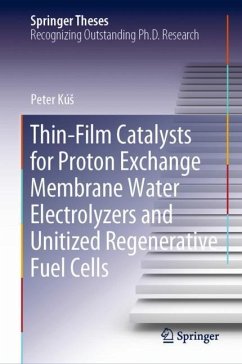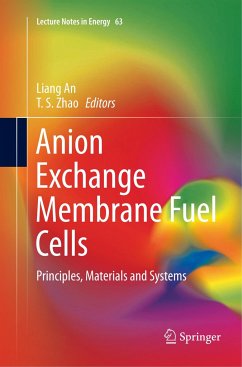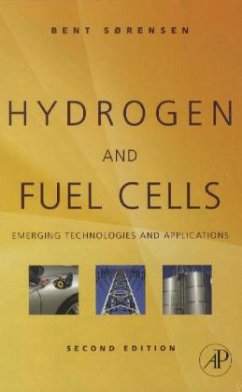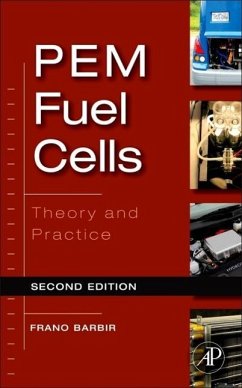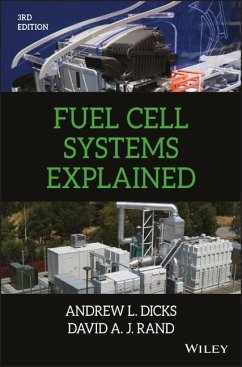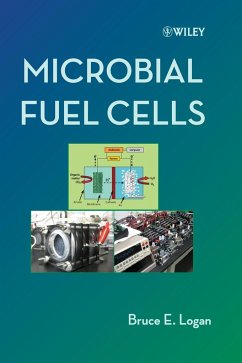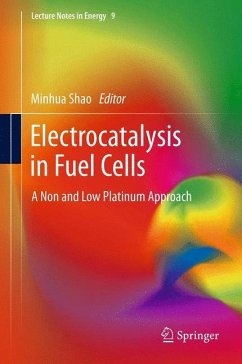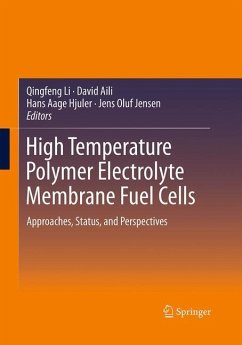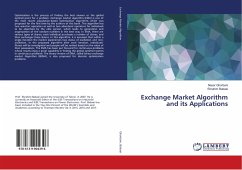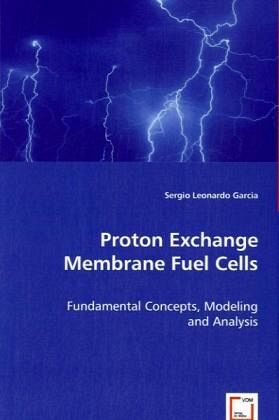
Proton Exchange Membrane Fuel Cells
Fundamental Concepts, Modeling and Analysis
Versandkostenfrei!
Versandfertig in 6-10 Tagen
45,99 €
inkl. MwSt.

PAYBACK Punkte
23 °P sammeln!
This book presents, in a very comprehensive manner, the basic physical and mathematical laws that describe the electrochemical mechanisms that govern the performance of a proton exchange membrane fuel cell (PEMFC). These laws are used to develop an equivalent electric transient model of a PEMFC, suitable to be implemented in any commercially available electric circuitsimulator software. In summary this book (1) looks into the history, main characteristics, classification, advantages and applications of fuel cells; (2) explores different modeling approaches, highlighting their most important co...
This book presents, in a very comprehensive manner, the basic physical and mathematical laws that describe the electrochemical mechanisms that govern the performance of a proton exchange membrane fuel cell (PEMFC). These laws are used to develop an equivalent electric transient model of a PEMFC, suitable to be implemented in any commercially available electric circuitsimulator software. In summary this book (1) looks into the history, main characteristics, classification, advantages and applications of fuel cells; (2) explores different modeling approaches, highlighting their most important contributions, limitations and possible improvements; (3) describes the main components of a PEMFC and their functions; (4) provides basic notions about the electrokinetic processes in a PEMFC; (5) provides a set of equations and boundary conditions used to develop the equivalent electric transient model; (6) describes in detail the proposed equivalent electric transient model and its components;(7) presents conclusions and suggestions to improve the equivalent electric transient model, and (8) shows the software code developed to post-process the data obtained experimentally.



